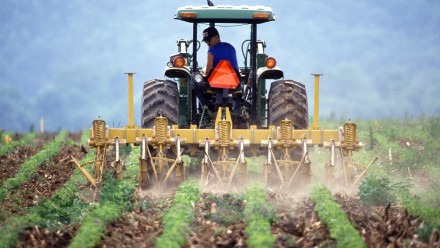How can we support farmers in a changing climate?
As our climate changes, changes in temperature and rainfall and the increased likelihood of extreme weather events threaten to disrupt agricultural productivity. Many of the traditional support structures and strategies used by farmers are currently falling short in helping them adapt, but there are ways that these approaches can support adaptation.
Md Kamruzzaman, a PhD fellow at Fenner School of Environment and Society, has explored how Agricultural Extension and Rural Advisory Services (AERAS) have supported farmers and farming activities to achieve sustainability in the agriculture sector in the past. However, the traditional strategies of AERAS have so far had limited success in tackling climate change. What needs to change in order for AERAS to successfully support farmers’ response to climate change?
AERAS are organizations that support farmers’ access to farming knowledge, information, and technology, and their interaction with markets, research, and education. AERAS also help to develop the technical, organizational and management skills and practices of farmers for better farming activities. .
Kamruzzaman found that as climate change effects multiple sectors within farming, such as the crop sector, fishery and forestry, there is no straightforward, one-size-fits all solution.
For example the traditional approaches, such as introducing new technological solutions like a new rice variety, have been largely ineffective.
“We have to think the other way around” said Kamruzzaman, “Climate change impacts different stakeholders and sectors in different ways. So, to seek a solution, AERAS need to accommodate the concerns of all stakeholders, and work with those both inside and outside of the agriculture sector. They should connect all stakeholders to facilitate easy and free flow of information, knowledge, ideas about climate change impacts and its adaptation.”
Kamruzzaman also found that there is still a lack of collaboration and coordination among the climate change adaptation activities supported by the AERAS agencies. He recommends that AERAS agencies serving in a particular area share and synchronize their plans and activities for more effective use of resources.
Kamruzzaman also argues that AERAS agencies need to properly communicate the climate change effects on agriculture to policy makers, and seek favourable rules as well as funding opportunities for adaptation activities.
Mr. Kamruzzaman identified new roles and competencies needed for AERAS agencies to support climate change adaptation in the agriculture sector. But he argues that there is limited knowledge on how to develop the capacity of the AERAS agencies to perform these roles. “I think further research is needed on ways and means to better develop capacities of AERAS agencies to support for climate change adaptation in the agriculture sector” said Kamruzzaman.
The paper “How Can Agricultural Extension and Rural Advisory Services Support Innovation to Adapt to Climate Change in the Agriculture Sector?” is published by Advancements in Agricultural Development Journal. http://agdevresearch.org/index.php/aad/article/view/9











